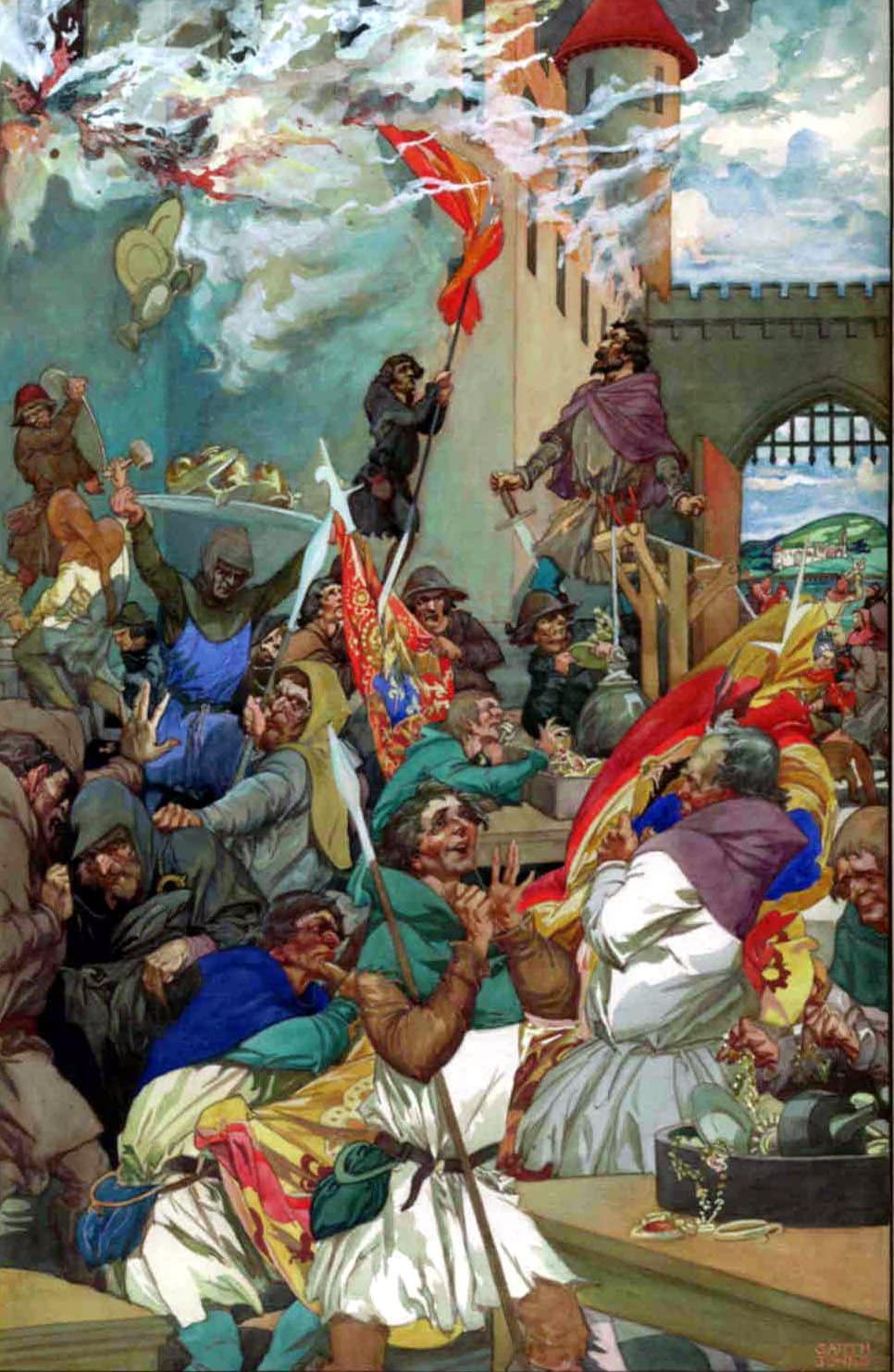
ADVERTISEMENT - CONTINUE READING BELOW
The Great Rising
The Great Rising, also known as the Peasants’ Revolt or Wat Tyler’s Rebellion after one of its main leaders, was a major uprising that rocked England in 1381. The revolt’s roots traced back to the aftermath of the Black Death which killed a third to a half of the kingdom’s population. The depopulation led to a severe labor shortage. That allowed surviving workers to negotiate higher wages and better working conditions, particularly from landowners desperate to have their fields tilled. In response, landowners and employers got the government to enact the Statute of Laborers in 1351, which fixed wages at pre Black Death rates. Discontent amongst peasants and the laboring classes had simmered ever since. The discontent came to a boil in 1381, with the enactment of an unpopular poll tax.
That May, officials tried to collect the tax in Essex, and were violently resisted. The resistance spread, and caught the government of the then fourteen-year-old King Richard II by surprise with its vehemence and speed. Rebels seized and burned court and tax records, emptied the jails, and visited rough justice upon unpopular landlords and employers. They demanded an end to serfdom, lower taxes, the dismissal of unpopular officials and judges. To drive home their point, disparate rebel bands coalesced and marched on London. On June 13th, a Kentish contingent under Wat Tyler entered the city. There, they massacred Flemish merchants, destroyed the palace of an unpopular uncle of the king, and seized the Tower of London. The king’s chancellor and his treasurer, deemed responsible for the introduction of the hated poll tax, were captured and beheaded.

